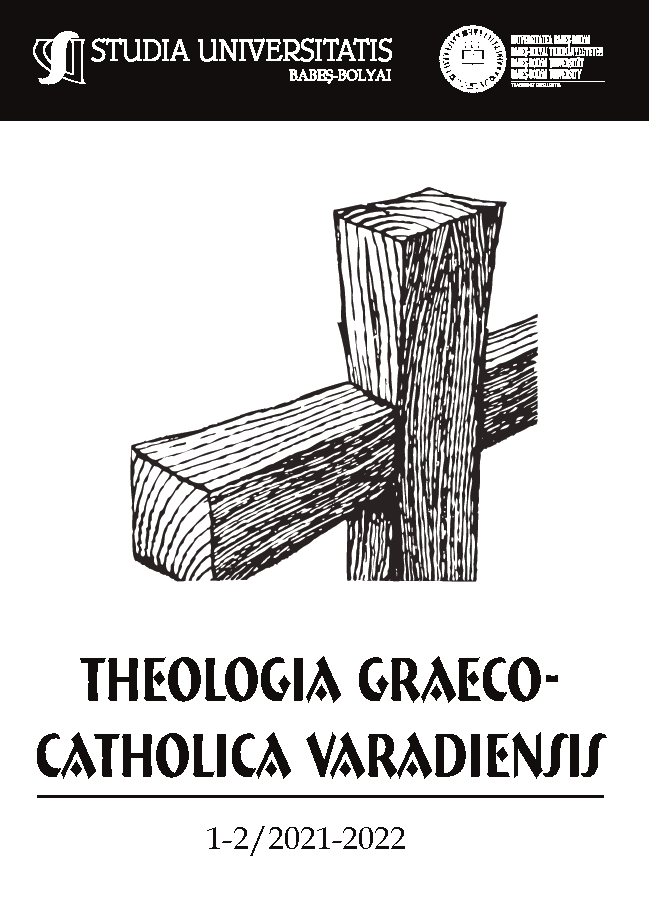IDENTITATEA CONFESIONALĂ A ROMÂNILOR GRECO-CATOLICI ÎN PERIOADA INTERBELICĂ – ELEMENTE ALE DISCURSULUI IDENTITAR
DOI:
https://doi.org/10.24193/theol.cath.var.2021-2022.04Keywords:
Greek-catholic, confessional identity, otherness, entagled modernitiesAbstract
The Confessional Identity of Greek-Catholic Romanians in the Interwar Period - Elements of Identity Discourse. The paper analyzes the evolution of the confessional identity of the Greek-Catholic Church from Romania, in the Inter-Wars period. The discourse of identity of the Romanian Uniate Church has many themes originated in the works of the ecclesiastical elite from the mid 18th century. On the other hand, the period after the union of Transylvania with Romania placed the Romanian Greek-Catholic Church in a very different political, social and cultural context, becoming a minority inside the wider Romanian national community of an Orthodox majority. Thus, new elements were added to the confessional discourse of identity, strengthening the theme of belonging to the Catholic, Western, spiritual environment.
Downloads
Published
How to Cite
Issue
Section
License
Copyright (c) 2022 Studia Universitatis Babeș-Bolyai Theologia Graeco-Catholica Varadiensis

This work is licensed under a Creative Commons Attribution-NonCommercial-NoDerivatives 4.0 International License.



